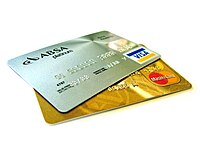Enrolling in a debt management plan
Signing up for a debt management plan may give you more breathing room in your monthly budget, but will it hurt your credit? Not as much as you may think. Using a debt management plan to pay off debt won’t hurt your credit score, but it may make it difficult to qualify for new credit.
Debt management plan: Protecting your credit score
When you enroll in a debt management program, you write a monthly check to a credit-counseling agency and the agency pays your creditors. A debt management plan usually lasts three or four years. A notation stating that you are paying an account through a credit-counseling agency appears on your credit report and remains until the account is paid in full. Paying an account through a credit counseling agency will not hurt your credit score.
Debt management plan: Qualifying for new credit
Participating in a debt management plan could make it difficult for you to qualify for additional credit, and some debt management plans prohibit consumers from applying for new credit anyway.
Some creditors may see that a person is in a debt management plan and decide that they have all the debt they can handle. Other creditors might view participation in a debt management plan as a positive step, a sign that a consumer has taken responsibility for and is serious about paying off debt.
The more a creditor bases a lending decision on a consumer’s credit score, the less a consumer’s participation in a debt-management plan is likely to matter. A typical creditor uses the FICO score. They don’t look at notations on the account. Paying off a big chunk of debt on your own or with the help of a debt management plan will give your credit score a boost.
Debt management plan: Late payments hurt your credit score
What will hurt your credit score? Not debt management plans. Instead, being 30 or 60 days late with any payments can adversely impact your credit rating. Those negative marks hurt your credit score and can mar your credit report for up to seven years.
Debt management plan: Choose wisely
It is very important to choose a debt management plan carefully. If the agency administering the program misses or is late with a payment, it is your credit record that gets impacted. Enrollment and monthly fees for debt management plans vary widely. Some companies may charge several hundred dollars for their services, while others charge monthly fees of $20 or less.
With a debt management plan, a consumer usually gets reduced interest rates, lower monthly payments, no more late fees and fewer calls and letters from creditors. Debt-counseling agencies get their operating money by receiving a percentage of each client’s payments back from creditors.
If you are current on your bills, you may want to try negotiating new payment amounts and lower interest rates with creditors on your own. You never know what kind of deal you may land. And you may be able to make real headway on your debt by simply tightening your belt for a few months and freeing up more cash for debt payments.
Debt management plan: Monitor your debt counselor
If your situation is more serious or you just feel plain overwhelmed, you may want to talk to a debt counselor. If you decide to sign on for a debt management plan, be sure to monitor your credit bills carefully. Is the agency paying your bills on time as promised? You need to be vigilant and look at your statements regularly.
If you discover a problem with bills paid through a debt consolidation company or credit counselor, report the company to a local consumer protection agency or state attorney general‘s office. You can also file a complaint with the Better Business Bureau. For more ideas on how to monitor these companies, see some of the suggestions by the FTC on Debt Management Plans.
Related articles
- Debt Management Plans vs Bankruptcy (Bankrate.com)
-
Weighing the Options With Credit Card Debt (nytimes.com)
-
Get a Handle on Your Debt (alwaysbcmom.com)
- Don’t Carry Debt To Improve Your Credit Score (bargaineering.com)
Examples of Debt Management Companies


![Reblog this post [with Zemanta]](http://img.zemanta.com/reblog_e.png?x-id=e30e37ff-4269-4f24-b251-047235943bf5)



![Reblog this post [with Zemanta]](http://img.zemanta.com/reblog_e.png?x-id=b1c0889f-a269-46b9-80df-c09b7a6951ca)

![Reblog this post [with Zemanta]](http://img.zemanta.com/reblog_e.png?x-id=b88ce353-ee2a-4d53-8caa-47250fcfdce8)

![Reblog this post [with Zemanta]](http://img.zemanta.com/reblog_e.png?x-id=363e26d2-0462-4b17-afc4-7d82393bf2cb)


![Reblog this post [with Zemanta]](http://img.zemanta.com/reblog_e.png?x-id=d6be7034-32ad-462c-a74c-4b864ec93f42)

 Almost every working American has a
Almost every working American has a ![Reblog this post [with Zemanta]](http://img.zemanta.com/reblog_e.png?x-id=c0413a2d-7c94-4575-b10c-1aebd72fb229)
